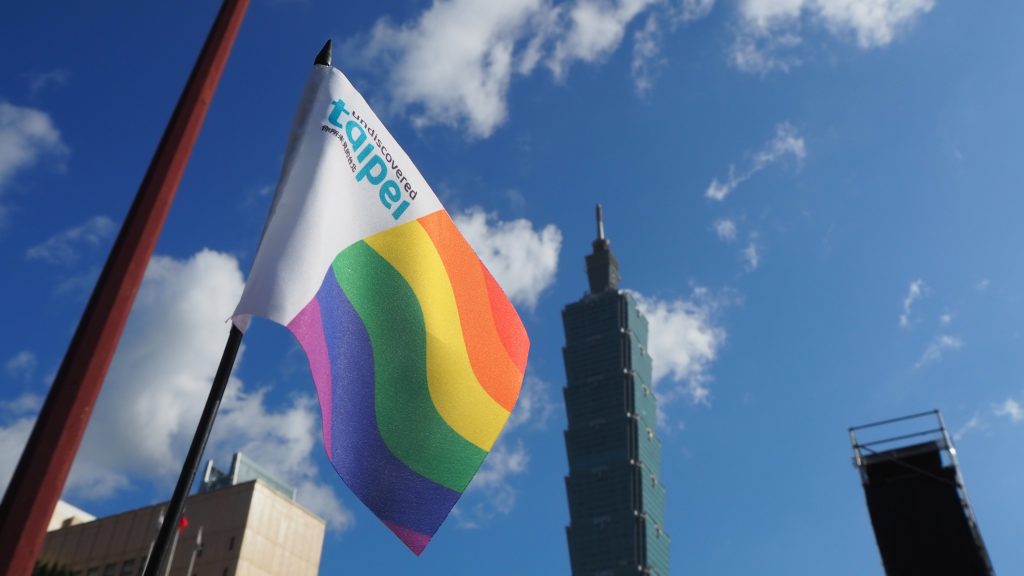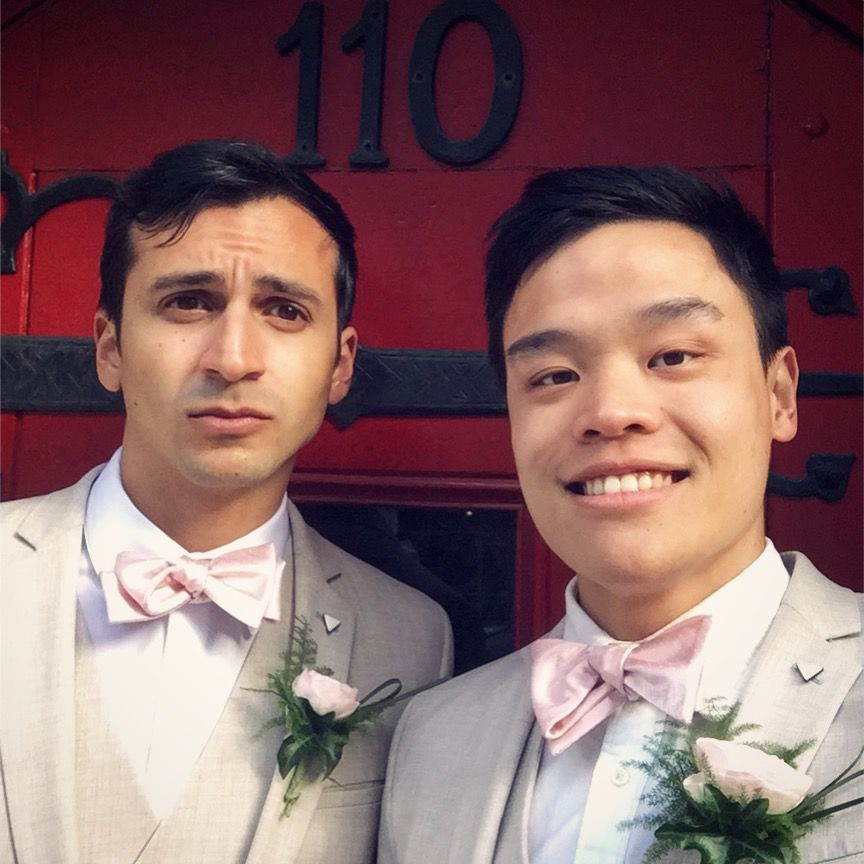Top image: cottonbro/Pexels
Three years ago, Taiwanese Josie moved to Singapore to be with her girlfriend. Her girlfriend’s family, however, was never supportive of her. They regarded her as an “outsider,” a “bad company” that’s making their daughter “sick”.
Despite the hurdles, Josie found a job and moved to Singapore so that they wouldn’t have to be in a long-distance relationship any longer.
“I often find myself asking for advice on how I could make my girlfriend’s family accept me,” she said. “I was told time helps, but I could not see the light at the end of the tunnel.”
Unhappy in Singapore, Josie returned to Taiwan in December 2020, not knowing when she would be able to return.
“I don’t even know if I could change anything by coming back,” she added. “Living apart pains me, but undergoing the entire job hunt and visa application again would be painstaking. I am not hopeful at all as the pandemic persists.”
As they are both settled into their respective countries, Josie and her girlfriend have decided to remain in a long-distance relationship indefinitely.
I heard a similar story from Dwayne, a Singaporean residing locally with his American husband, Nich.
“We have a close friend whose boyfriend was based in Australia,” he shared. “They were dating for a year and saw each other probably once right before the pandemic broke out.”
“They tried to hold onto their relationship for one more year. It wasn’t supposed to be pressurising, but the distance and uncertainties brought about by COVID-19 just exacerbated it. It’s a huge investment for couples, be it same-sex or not, to live separately.“

When long-distance isn’t a choice
Taiwan is the only place that legalises same-sex marriage in Asia. Still, it’s restricted between two locals or Taiwanese and their foreign partners from countries that also recognise same-sex marriage. As a spouse visa will not be granted without a marriage certificate, many transnational gay couples in the continent are forced to stay in a long-distance relationship.
These couples rely on frequent travel or other legal leeways to meet or live together. It’s not uncommon for some to take up underpaying jobs to get a valid work permit or sign up for an additional degree they wouldn’t otherwise need for a student visa.
Beyond interrupting an individual’s personal and career plans, having to take up a low-paying job or expensive degree for a visa can add financial strains to a couple. In many cases, couples who don’t have the privilege to take on the financial burden may opt to stick with a long-distance relationship, but this comes with hurdles—starting with immigration processes.
For instance, the individuals I spoke to told me that they are routinely targeted or questioned by customs officers on their recurring entry into the country, resulting in unnecessary tensions and even detentions.
Tian Tian, a Chinese citizen, shared a story of how he was repeatedly interrogated by the Taiwan authorities when visiting his boyfriend.
He had to sign documents to prove that he was neither a spy nor an employee of the Chinese government or any Chinese telecommunication company.
Since then, Tian Tian has been granted a multiple entry visa, giving him more opportunities to stay with his boyfriend working in Taichung City. However, he still needs to fly from Seoul, Hong Kong, Macau, and other Asian cities as the delicate bilateral tie between Taiwan and the Mainland fluctuates from time to time.
Just listening as Tian Tian told me about the hoops he jumps through to keep his relationship alive was emotionally engulfing. Yet, he has been told before that “he is exaggerating”.
“What some people don’t understand is that what I am going through will never end as long as homosexuality is seen as an “illness” in the mainland,” Tian Tian remarked.

Logical and emotional fears
Dwayne and Nich met when they were both University freshmen, and they have been together ever since. While they got married four years ago in the US, Nich could not escape the fate of not being able to obtain a work permit to live in Singapore with Dwayne legally.
“I needed to be back in Singapore to serve my scholarship bond,” Dwayne explained. “That meant that I’d be stationed here for at least a few years and that Nich would have to find and maintain a job here.
The thought of whether we would be able to live together definitely came up more than once or twice during that period when he was job hunting and making visa applications.”
Indeed, the fear of not being able to reunite never leaves. “In the US, there’s a safety net that same-sex marriages are legitimate, and they are entitled to the same rights as any other couple. In Singapore, that is missing,” said Nich.
“At times, it becomes scary. Our lives are here, so moving away from our support system would be disruptive. I am always worrying that if I lose my job, or if a local employment visa requirement tightens, I need to move back to the US. I have no safety net.”
While Dwayne and Nich have temporarily figured out a way to live in Singapore together, many others are stuck in a long-distance relationship with no end in sight.
“We have heard of couples who undergo regular visa runs,” Dwayne said. “Those who don’t have a formal plan have to work out a system to stay together. Someone we knew needed to report to the embassy once every ten days, telling them he was staying in Singapore as a tourist during the pandemic. He could have just flown in and out of the country in the past. It’s a lot stricter now.”
“For Nich and I, things have been relatively smooth sailing thus far,” Dwayne noted. “It does help that he is a US citizen, and I am a Singaporean as we can enter many places in the world visa-free. We have friends holding onto passports that do not grant them such freedom, and applying for a visa can be a long and tedious process if one does so repeatedly within a short time frame.”
Nich’s biggest fear of potentially living in a different country is the physical separation from Dwayne.
“I would like to have a home together, live close to each other and involve each other in different parts of our lives,” he explained. “For example, before the days of working from home, knowing that we would have time together every day after coming home after the office was so important.
That’s why it feels terrible to know some couples have been barred from seeing each other and have to break up as a result.”
An increasingly difficult battle
Taiwanese Sheng Yu and his Japanese boyfriend met in 2008 at work. They spent the following first eight years of their relationship living together in Taiwan before Sheng Yu’s boyfriend returned to Japan four years ago to take up a job promotion—they have been in a long-distance relationship since.
After 12 years together, Sheng Yu struggles to digest the fact that he still needs to prove to border officials why his visit to Japan is legitimate.
“I remember this particular Japanese customs officer who was very sceptical and thought I was smuggling drugs into the country,” Sheng Yu said. “He requested to have my luggage opened at the border. Although all my personal belongings, including photos of my boyfriend and me, fell out, it took me a long time to convince him.
I don’t blame him as he was doing his job. But unless you have been through something similar, you would never know how much work it takes to keep a long-distance relationship alive for 12 years and plan for the next 12 years to come.”

Are basic rights too much to ask?
In 2020, the Taiwan Alliance to Promote Civil Partnership Rights (TAPCPR) embarked on an online donation drive called “See You Soon”, aimed at raising awareness of the social paralysis faced by transnational gay couples. The campaign was met with tremendous success, and the group managed to gather more than NTD$4 million (estimated SGD195,000) within three months.
In response to this effort, Dwayne said that we might see some flexibility in Singapore if we “take the battle wisely”.
For example, he brought up how in 2018, the High Court granted adoption rights to a Singapore doctor and his same-sex partner whose biological son was born in the US via a surrogate mother.
In addition, Dwayne said that he believes in the power of corporations. Some companies are willing to step up for their employees and work out ways to help their married same-sex partners stay together in a country. It may not be feasible in most instances, particularly in Singapore, but some options can be explored.
“I think we need to be careful what specific changes we are looking for,” said Nich. “Allowing same-sex couples who have married overseas to have the same rights as other married couples in Singapore and living together may still seem a small change versus the complete removal of 377A.”
Since our interview, Nich has returned to the US. Dwayne hasn’t been able to follow along as the new COVID-19 variant has forced countries to enact new travel restrictions.
“Even though we’ve been fortunate so far, our separation will inevitably be prolonged,” Dwayne told me via text before Christmas.
“While this pandemic will one day end for the rest of the world, for us, it will continue for the rest of our lives.”






